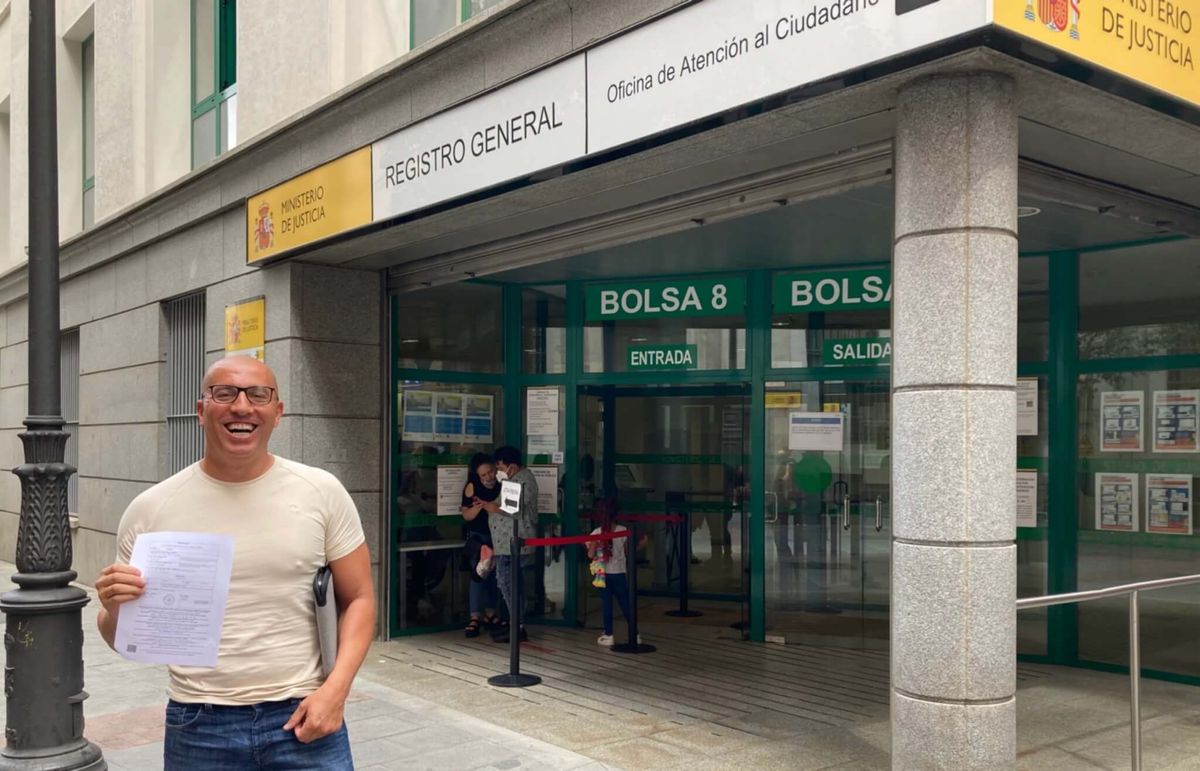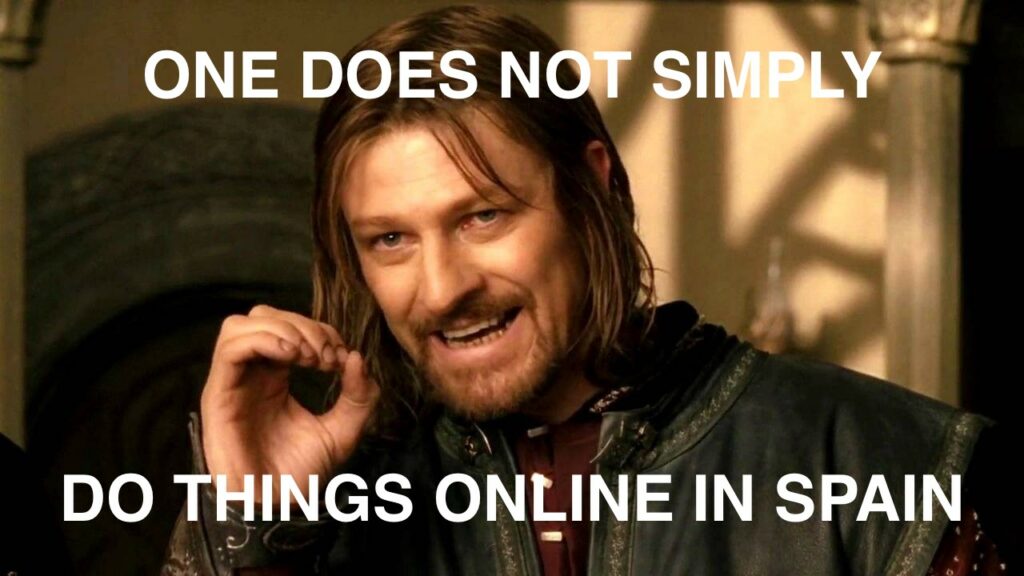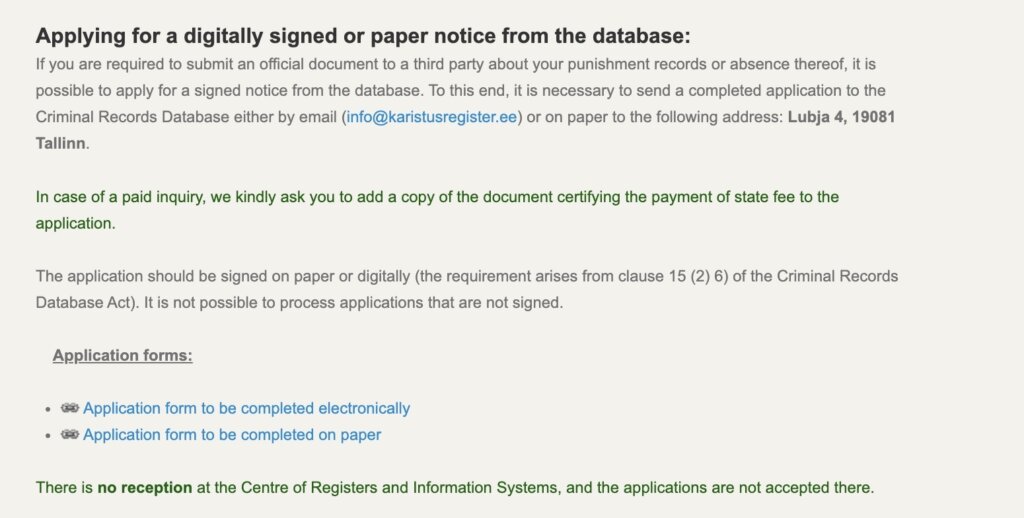This free, 5-min process in Estonia cost me 200€ and 2 days of my life in Spain

The resources that a government offers to its citizens can make a huge difference in their daily lives. In this post, I describe how a process that cost us 2 days of work and almost 200 euros in Spain can be done online in 5 minutes in Estonia, and it’s completely free.
Why does that matter?
Well, it’s not just a matter of money (which is important), but especially of time. We all have busy lives. Spending two days of your life and 200€ to do some paperwork that can be done online is an anachronism in 2022.
We’ve all embraced technology in our daily lives. We do our groceries through an app, communicate with our family and friends using social media or a chat, and “go shopping” online. We use fintech banking solutions. When we want to know the weather, we check on Google instead of looking at the window (you know you do that). We watch our movies on our devices and play with our friends online, even when we are in the same room.
And yet, governments design their processes like we’re still in the XX century. Even when they use technology, they make the wrong assumptions. Most governmental institutions, banks, et al. are sluggish beasts. They adapt slowly to changes in our society.
Some countries are doing things right though. One of them is Estonia. As we are going to see, that can make a huge difference in terms of money and time for their citizens.
That little document…
So what’s that little document causing all that trouble? It’s a criminal report. Renewing the e-Residency card of my husband is been much more difficult than we remembered. Apart from having to send Miguel’s photos three times, we were asked for a lot more information, including his criminal record.
The first time we applied for e-Residency, the Estonian police contacted the Spanish one to ask for our criminal records. Something must have changed. Anyhow, we were given one week to give them the report. It’s clear that the Estonian police assume other countries allow their citizens to request a criminal record as easily as Estonia. Especially, when you are out of the country and need to do it online.
After freaking out, we replied back, asking them to give us some more time and trying to find out how to make this happen. Fortunately, we were granted a couple of weeks.

One Does Not Simply Do Things Online In Spain
Ok, I think I’ve said that before, but one does not simply do things online in Spain. The first thing we did was go to the website of the Ministry of Justice. I remembered asking for my criminal records some time ago, and there was a website. I ended up having to go to Spain physically anyway, but perhaps things had changed since then.
So we got to the official website, armed with our digital certificates. We log in, fill in all the information… and when we go to the payment screen, I remembered why it is impossible to do this process online.
You need to pay 3.96 euros to get the criminal records. It is a small fee, but there are only two ways of paying it. One is doing a bank transfer from a Spanish bank account, and another is a credit or debit card payment… but only from a card issued by a Spanish bank.
And none of us had a bank account in Spain anymore…
Looking For A Spanish Bank Account
Not all Spanish banks were valid, there was a list of the ones that could be used to pay for the fee. So we started to reach out to our families and friends to look for someone who had a card issued by a bank from that list.
Imagine reaching out to a friend you haven’t talked to for years to ask him if she can give you their credit card information to pay 3.96 euros on the Ministry of Justice’s website. Even my parents thought my Telegram account had been hacked.
Finally, we located a friend who not only had a card issued by one of the valid banks but was also willing to help us. We held our breath and entered the data on the website… Only to find out that the bank account linked to the card had to be under Miguel’s name.
One has to admire the civil servants in charge of the IT department of the Ministry of Justice. They managed to get one of the few global and universal processes out there (paying through a credit/debit card) and limit it to just people with Spanish bank accounts.
We had to book a flight to Madrid, and fast, to be able to get the criminal report in time. We had already lost one week.
Booking A Flight To Madrid
We booked a flight for Miguel for the following week. He would leave on Wednesday and get back on Friday. We were lucky for two reasons. First, we were in Lisbon, which is close to Madrid. Second, because Miguel can sleep in his mother’s house, so we won’t be spending money on accommodation.
If we were in South-East Asia, for example, and Miguel didn’t have family in Madrid, the costs and time involved would be much higher.
Still, Miguel traveled on Wednesday, spent the whole morning doing the paperwork on Thursday, and also had to take the flight on Friday, amounting to a little bit more than two days of work lost.
Paying For The Fee At The Bank
On Thursday, Miguel had an appointment at 12:30 in the Ministry of Justice’s office in Madrid. But before that, he had to pay the state fee in one of the available banks and get a receipt signed and stamped by the bank.
So he locates an office in one of the “chosen” banks. There is a lady at the counter there, doing nothing. The office is empty. Still, she kindly informs him that they won’t be helping him because he doesn’t have a bank account there.
Frustrated, he tries a second banking entity, La Caixa. He enters the office that has two employees. Both looking bored as hell. None of them are busy, as there is no customer in sight.
Miguel goes to one of the employees and asks her for help. The lady, quite upset for being interrupted while looking at their Instagram feed, tells Miguel that he needs to pay for it in his banking entity. When he says that he does not have any Spanish banking entity, she mentions that this is then a “receipt” that can only be paid from 8:30 to 10:30. Miguel looks at his phone, and screams triumphantly “but it is 10:00!”, to which the lady says… “Well, 8:30 to 10:30, but only Tuesdays and Fridays”.
Getting The Criminal Record, Finally
So our poor Miguel has to tell this bored lady with nothing else to do the whole story. He does not have an account in Spain, and he has an appointment at 12:30 at the Ministry of Justice. He has taken a flight to Madrid, spending a lot of money just to be able to pay 3.96 euros to get this paper…
Finally, the lady, reluctantly, decides to help Miguel, not without letting him know that she is doing him a big favor for which he should be grateful for the rest of his life. She gets the money from Miguel and does some clickety clackety on her computer. One minute later, the fee is paid and our hero has the receipt, signed and stamped by the bank.
With that paper, and having filled in a monstrous form in advance while in Lisbon, Miguel manages to be in time for his appointment. He leaves the office of the Ministry Of Justice thirty minutes later with his criminal record. Yahoo!
The cost of the trip was 128.98€ for the flight tickets, 20.83€ for the taxi to the Lisbon airport, 1.80€ + 5€ for the airport supplement twice for the metro tickets (13.20€), 18.16€ for the taxi to the city center where the offices are, 8.62€ for the taxi back, and 3.96€ for the state fees. Total, 193.75€. Almost 200€.
Getting The Criminal Record In Estonia
Conversely, getting his criminal record in Estonia was super easy. We did the whole process online for free.
I looked for “criminal record Estonia” and landed on the Criminal Records Database’s website. There, the instructions were very clear.

We just created a document stating that Miguel wanted the criminal record. Miguel signed it digitally and sent it to the email address indicated above.

It’s Not Funny
This is one of these unbelievable but true stories that makes everybody laugh. But it’s not funny at all. Miguel lost two days of work and almost 200 euros because nobody in the Spanish administration cares to modernize these dated procedures. Even when they are using technology, they fail to serve their citizens because they make the wrong assumptions and don’t consider real case scenarios. This is not an isolated case. The whole Spanish administration is badly in need of a complete overhaul.
By comparison, getting a certificate in Estonia was simple and free. It only took us five minutes to write the email and sign the request, and we had the criminal records in our inbox just two days ago. By digitalizing all its administration, Estonia manages to save annually 820 years of work to its citizens.




Comments ()